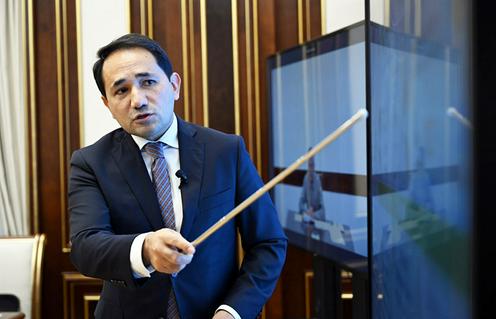 Mirziyod Yunusov, chairman of the board of the UzEltechSanoat Association (Uzbek Electrical Industry). Photo: Press service of the President of Uzbekistan
Mirziyod Yunusov, chairman of the board of the UzEltechSanoat Association (Uzbek Electrical Industry). Photo: Press service of the President of Uzbekistan
Uzbekistan plans to at least double its exports of electrical equipment to Europe following the introduction of a conformity assessment system, according to a presentation given to President Shavkat Mirziyoyev on October 8 on measures to further develop the electrical industry and boost the sector’s export potential, the presidential press service reported.
The country’s Technical Regulation Agency is developing the system jointly with European partners. Once implemented, Uzbek products will be able to carry the “CE” mark, certifying compliance with European Union standards and opening broader access to EU markets.
Export growth will also be supported by the recent admission of Uzbekistan’s Institute of Standards to the International Electrotechnical Commission as a member of the certification scheme, which ensures the recognition of Uzbek manufacturers’ certificates in 53 countries.
Over the first nine months of 2025, production in Uzbekistan’s electrical industry grew by 16.3 percent, reaching 34 trillion soums (over $2.7 billion), with exports totaling $970 million.
However, the sector still holds significant potential, particularly in producing higher value-added products, deep copper processing, and export diversification.
At the presentation, officials discussed measures to promote deeper raw material processing and support local manufacturers, including discounts for enterprises purchasing raw materials, partial state compensation of interest rates exceeding 5 percent, and tax and customs incentives.
It was emphasized that in addition to producing traditional goods, the industry should expand into high-tech areas such as electronics and semiconductors.
According to forecasts, copper production in Uzbekistan will reach 250,000 tons in the coming years and 500,000 tons by 2030. This raw material will serve as a base for producing high-value-added products such as servers, industrial electronics, air conditioners, solar panels, control and measuring instruments, automation systems, and smart cards.
In total, the electrical industry’s project portfolio includes 157 initiatives worth $2.1 billion, expected to create 14,500 new jobs.









